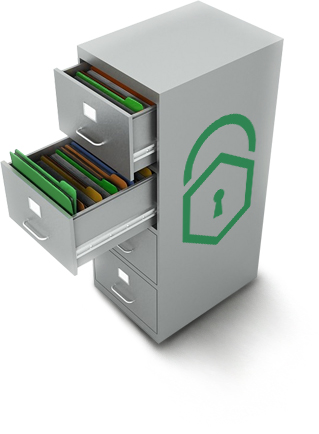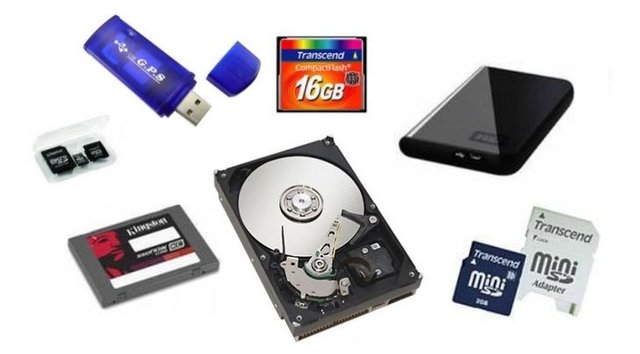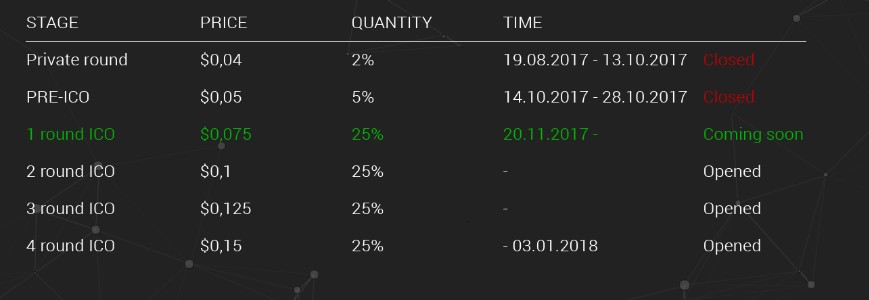
Many people think about how to save data for many years, and those who do not may simply not know that a CD with photographs from a wedding, a video from a children's matinee or other family and work information will most likely not be readable in 5 years -ten. I think about it. How, then, should this data be stored?
General principles of storing information, extending its life
There are the most general principles that apply to any type of information, be it photographs, text or files, and can increase the likelihood of successful access to it in the future, among them:
The larger the number of copies, the more likely the data will live longer: a book printed in a million copies, a photograph printed in several copies for each relative and digitally stored on different drives, are likely to be stored and available for a long time.
You should avoid non-standard storage methods (at least, as the only way), exotic and proprietary formats, languages (for example, for documents it is better to use ODF and TXT, rather than DOCX and DOC).
Information should be stored in uncompressed formats and in unencrypted form - otherwise, even a slight damage to data integrity can make all information inaccessible. For example, if you need to save media files for a long time, then WAV will be better for sound, for photos - uncompressed RAW, TIFF and BMP, for video - uncompressed frames, DV, although this is not entirely possible in everyday life, given the amount of video in these formats.
Regularly checking the integrity and availability of data, re-saving them using new emerging methods and devices.
So, we figured out the basic ideas that will help us leave a photo from the phone to our great-grandchildren, let's move on to information about various drives.
Traditional storage devices and the storage time of information on them
The most common ways of storing various kinds of information today are hard drives, Flash drives (SSD, USB flash drives, memory cards), optical disks (CD, DVD, Blu-Ray) and not related to drives , but also cloud storage serving the same purpose (Dropbox, Yandex Drive, Google Drive, OneDrive).
Which of the following is a reliable way to save data? I propose to consider them in order (I am talking only about everyday methods: streamers, for example, I will not take into account):
Hard drives - Traditional HDDs are most commonly used to store a wide variety of data. With normal use, their average service life is 3-10 years (this difference is due to both external factors and the quality of the device). At the same time: if you write down information on the hard disk, disconnect it from the computer and put it in a desk drawer, then the data can be read without errors for about the same period of time. The safety of data on a hard disk largely depends on external influences: any, even not strong shocks and shaking, to a lesser extent - magnetic fields, can cause the drive to fail prematurely.
USB Flash, SSD - the average lifespan of Flash drives is about 5 years. At the same time, ordinary flash drives very often fail much earlier than this period: one static discharge is enough when connected to a computer to make the data inaccessible. Provided that important information is recorded and then the SSD or flash drive is disconnected for storage, the data availability period is about 7-8 years. USB Flash drives
CD, DVD, Blu-Ray - of all of the above, optical discs provide the longest data storage period, which can exceed 100 years, but this type of storage is associated with the greatest number of nuances (for example, a DVD disc you burned will most likely live only a couple of years)
Cloud storage - the storage period of data in the clouds of Google, Microsoft, Yandex and others is unknown. Most likely, it will be stored for a long time and as long as it is commercially viable for the company providing the service. According to the licensing agreements (I read two for the most popular repositories), these companies are not responsible for data loss. Do not forget about the possibility of losing your account due to the actions of intruders and other unforeseen circumstances (and their list is really wide).
So, the most reliable and durable consumer drive at this point in time is the optical CD (which I will write about in detail below). However, the cheapest and most convenient are hard drives and cloud storage. Do not neglect any of these methods, because their sharing increases the safety of important data.
But all these drives have a lot of disadvantages and disadvantages!
Disadvantages:
- Sensitivity of the back, recording side for physical damage:
Yes, even the smallest scratch will make it difficult for the drive to access your disc. The most ridiculous hit on the floor can crack it - then you shouldn't plug it into the drive at all. the consequences can be dire (up to the breakdown of the drive, or a heart attack (if the disc in the drive bursts too loudly! hah! joke of course.)
- Small capacity:
Yes, even the most capacious Blu Ray discs (up to 25 GB) will still not compete with hard drives or flash memory. And DVDs won't fit more than 4.7 GB at all. (I am silent about the CD (0.7 GB).
- Risk of stumbling upon a fake:
Indeed, it is worth learning how to choose the right flash cards for yourself. After all, it is very easy to stumble upon a fake, which can subsequently stop working for many different factors. To prevent this, you should not be led at an inexpensive price. It is also better to buy flash memory in large stores, with a guarantee (preferably for half a year or more).
How can you avoid all these disadvantages and be able to store information more reliably, and at the same time earn money ?! I present to your attention such a project as BMcoin - Bank of Memories, which means Bank of Memories!
Bank of Memories is the world's first service for creating, storing and sending emotional content to the future. Integrated family tree function based on Blockchain technology.
What cool features do you get:
Emotional Messages
The most "charged" content that will be saved from the moment of its creation and delivered to the specified user or message sender unexpectedly or with a notification at a specified time is that the user does not want or does not want ready for transmission or display at the moment.
Genealogical tree
A family tree is a profile that identifies relatives, accumulates information about a person and is a personal cell, stores information about the genus, available only to members of the genus.
Digital monument
A digital monument is a special section of the Family Tree, which accumulates confirmed information about a person, which will become public after a person's death in the form of a QR code. Emergency access to the cell is implemented using a shared key.
ICO scheme
What technologies are used:
Data protection
Bank of Memories is based on the successful technical solutions of the project partner - Security Services Group, which has been working in the field of data protection for more than 8 years. These solutions are used in the work of the Secserv.me service and the Kryptos application
Decentralized database
The database, accessible through the Bank of Memories platform, is completely decentralized and stores data from multiple space providers, eliminating the threat of a single point of access to any user's data
Security
Integration requires a high level of security - the goal is to secure PCI DSS (the industry standard for the payment card industry) for proper PCI DSS certification - a certification widely used by banks and other financial institutions that require strong auditing and identity protection
Website https://bmcoin.io/
Buy tokens https://ico.bmcoin.io/register
Whitepapper-Technical Documentation https://bmcoin.io/WP-EN.pdf
BITCOINTALK https://bitcointalk.org/index.php?topic=2255373
Facebook http://www.facebook.com/bankofmemoriesltd
Twitter http://www.twitter.com/bankof_memories
Name:Bayanganhitam
https://bitcointalk.org/index.php?action=profile;u=2851798;sa=summary
Tidak ada komentar:
Posting Komentar